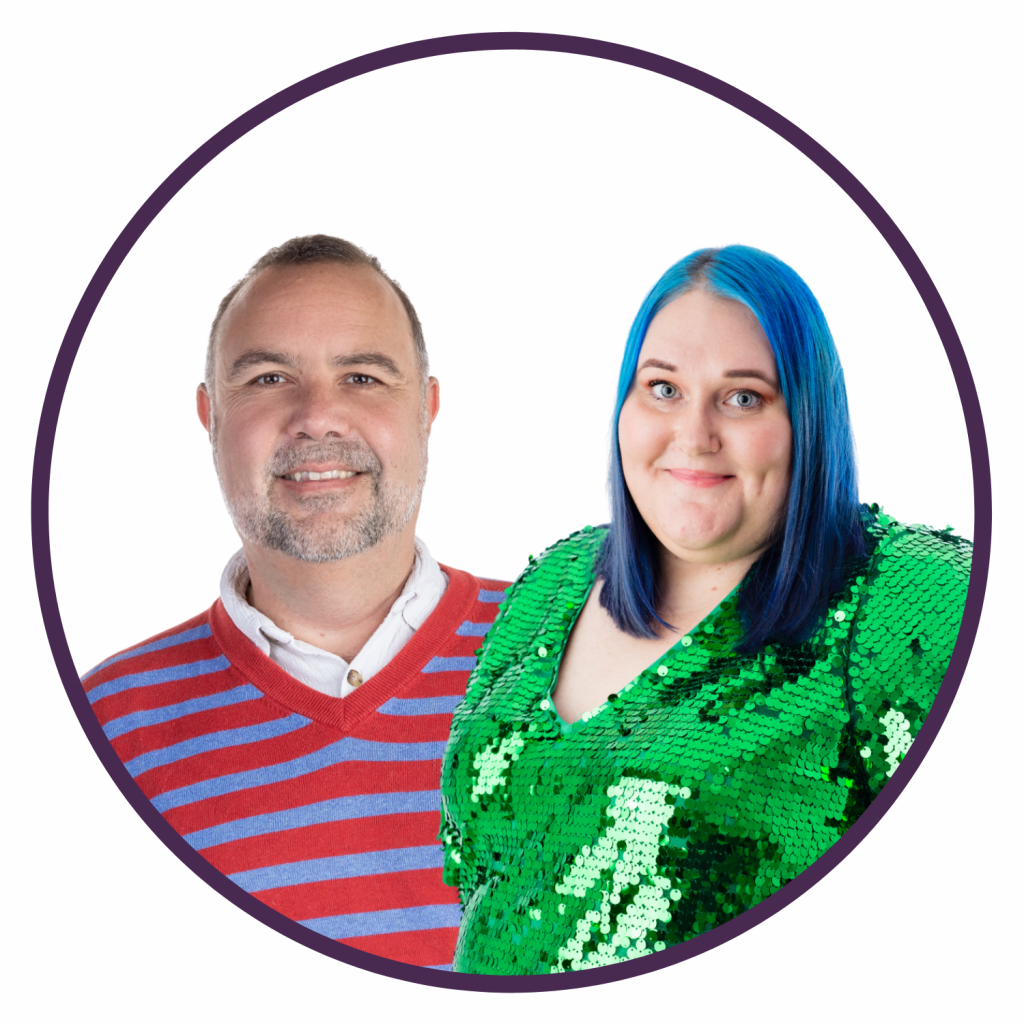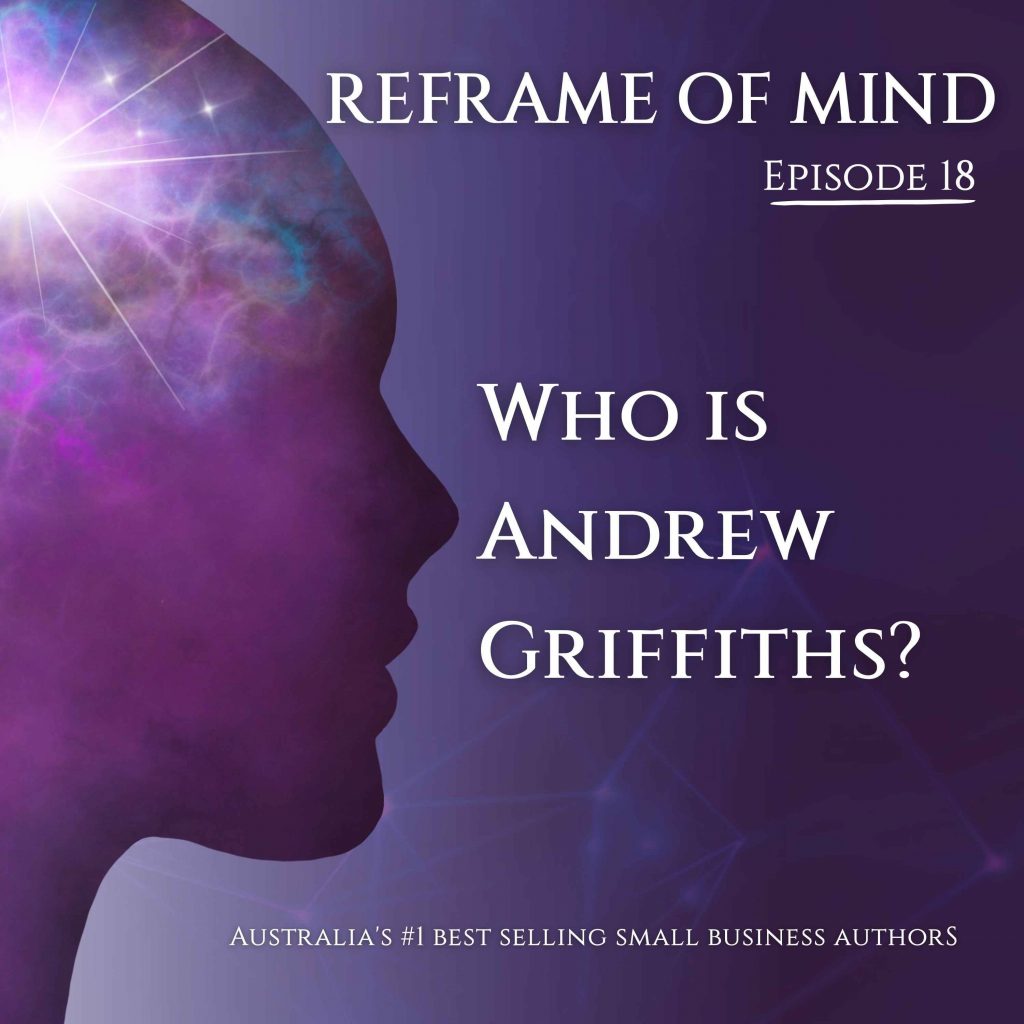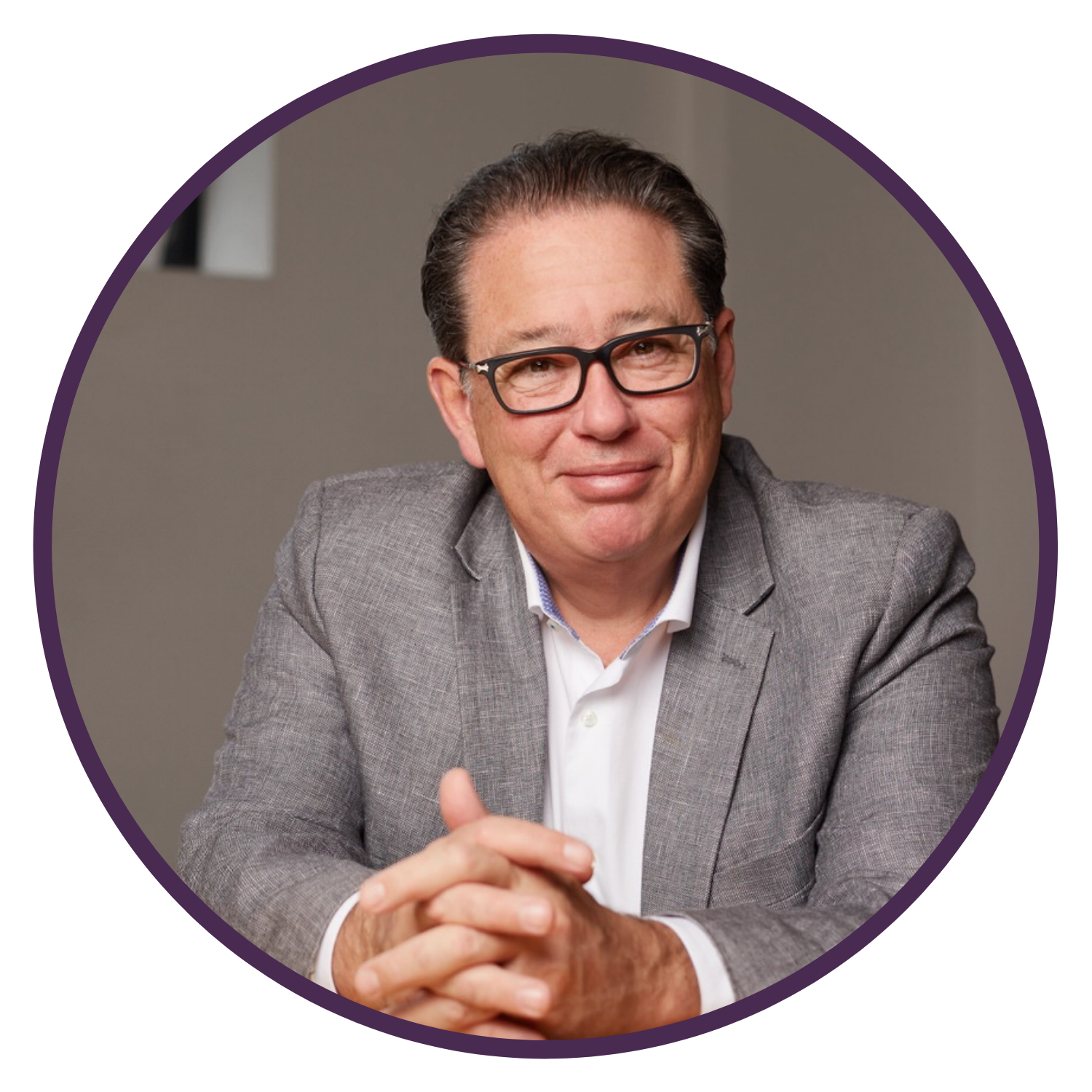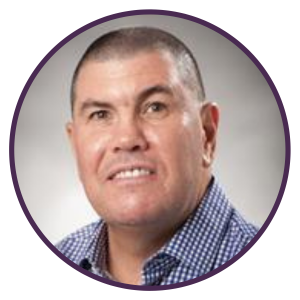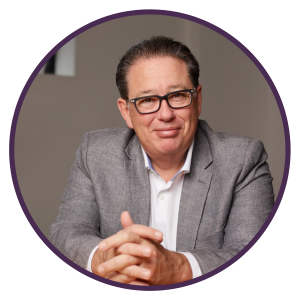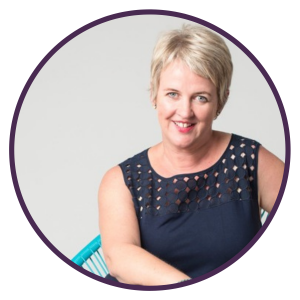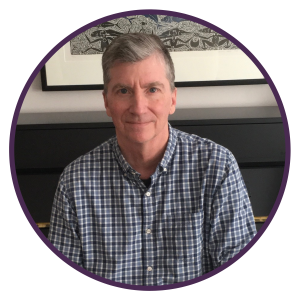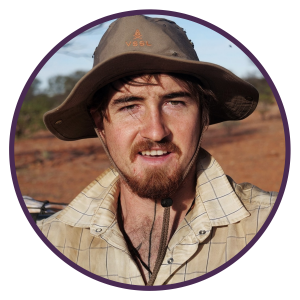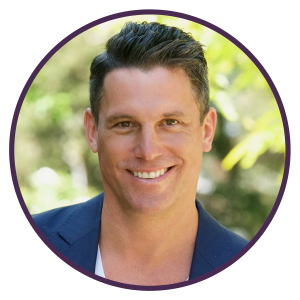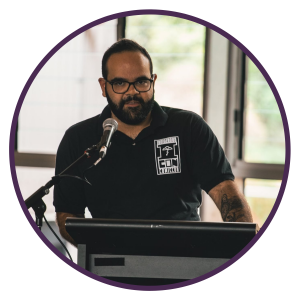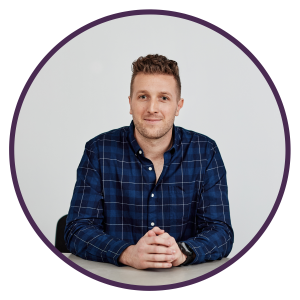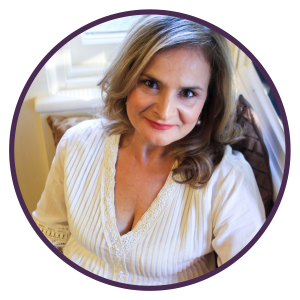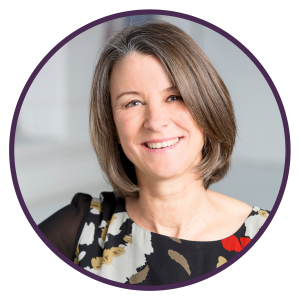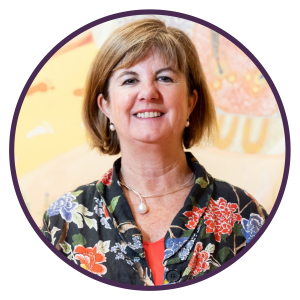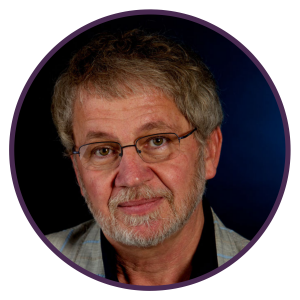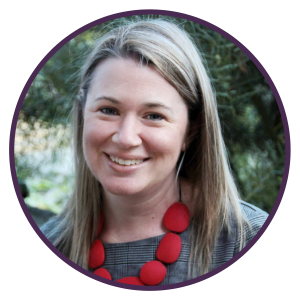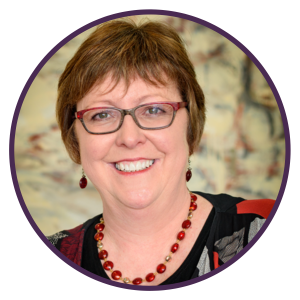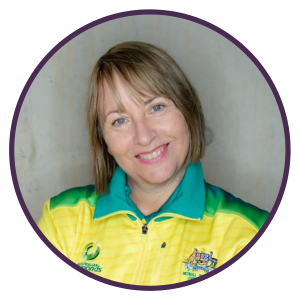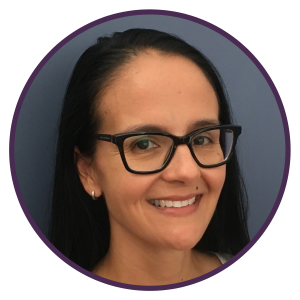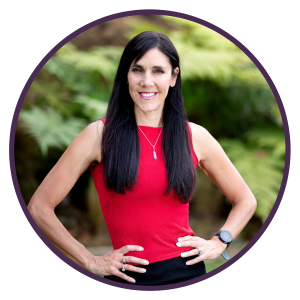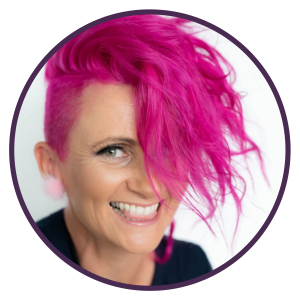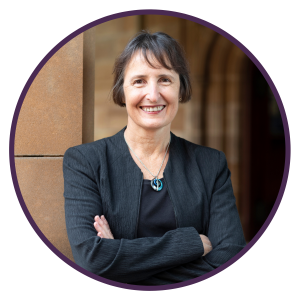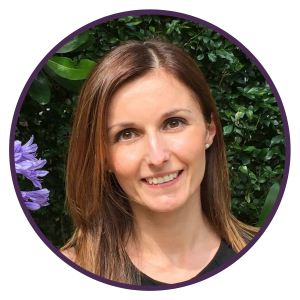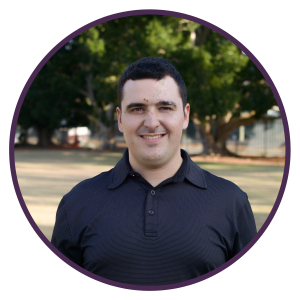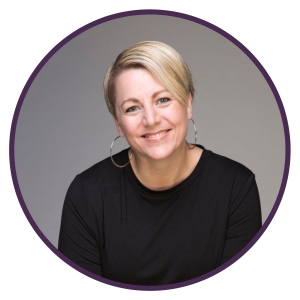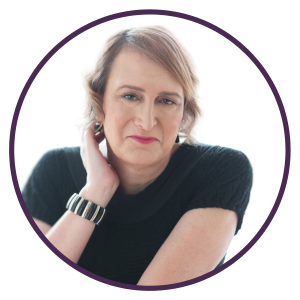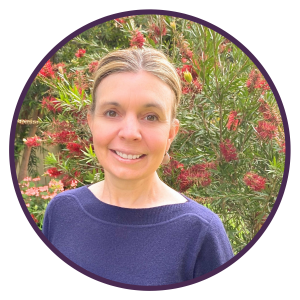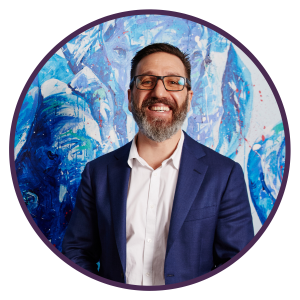Transcript has been auto-generated and may contain errors. Your support on our patreon would go towards being able to provide a human-edited transcript for accessibility.
Ep 18 Transcript
00:00:00
We acknowledge the Yuggera and Kaurna nations as traditional custodians of the land on which we work, live and learn, and their continuing connection with the land waters and community.
00:00:09 Speaker 1
We pay our respects to them and their elders past and present.
00:00:12 Speaker 2
All content related to this program is for general informational purposes only and contains stories and discussion around mental health that may be disturbing to some listeners.
00:00:22 Speaker 2
If you’re concerned about yourself or someone you know, please seek professional and individual advice and support.
00:00:28 Speaker 2
More details are contained in our show notes.
00:00:31 Speaker 3
There were a couple of crossroad moments and Iota turn left or turn right and I had the strength of character at the time to turn left.
00:00:38 Speaker 3
I may come across as this guy that’s got altogether deep down.
00:00:41 Speaker 3
I’m deeply flawed in in so many wonderful ways, I hope.
00:00:45 Speaker 1
That’s international best selling business author Andrew Griffiths, and this is re frame of mind.
00:00:52 Speaker 2
The broadcast that cuts through the platitudes and gets to the core of living authentically challenging our assumptions and improving mental health with the guidance of good science, philosophy and learning from other people’s lived experiences.
00:01:03 Speaker 1
And where your hosts Louise Pool and Andy Leroy and last time we pulled apart the notion of other peoples perceptions and their impact on how we value ourselves.
00:01:12 Speaker 2
So when you see a book with the title, someone has to be the most expensive.
00:01:16 Speaker 2
Why not make it?
00:01:17 Speaker 2
You by author Andrew Griffiths, it, I don’t know.
00:01:21 Speaker 2
He kind of seems very encouraging and something I’d like to pick up to get some quick tips on how to make the dash for cash.
00:01:28 Speaker 1
Very enticing, but the layers within Andrew Griffith book actually contain an exploration of the fundamental value of knowing your own self worth, which we love.
00:01:38 Speaker 2
Yeah Andrew, bigger story in the book actually shows us that the wolf you think you can charge is directly related to the worth you.
00:01:45 Speaker 2
Believe you have.
00:01:46 Speaker 1
Someone has to be the most expensive.
00:01:48 Speaker 1
Why not make it you?
00:01:49 Speaker 1
It’s not about getting rich quick or even another self-help book laced with pithy platitudes.
00:01:54 Speaker 1
’cause you know how we don’t.
00:01:55 Speaker 1
Like platitudes and reframe of minds.
00:01:58 Speaker 1
No, Andrew story actually gives us that chance to ponder the choices that we make in life and how we support ourselves or not in the process.
00:02:05 Speaker 2
Now just a bit of background.
00:02:07 Speaker 2
Griffiths has written 14 books and they’ve been sold in over 65 countries around the world, and it’s presented over 750 keynotes, workshops and presentation.
00:02:16 Speaker 2
For a huge range of organisations in 25 countries, Yep.
00:02:20 Speaker 1
Yep, clients include everyone from new and aspiring business owners right through to global companies and organisations like the European Union, CBS, Hewlett Packard, many more.
00:02:28 Speaker 1
So Andrew Griffiths knows what he’s talking about when.
00:02:31 Speaker 1
It comes to business.
00:02:31 Speaker 2
Ah yeah, he’s been offering for over 20 years and you know, like I said, 14 best selling books to his name translated into ten other languages.
00:02:40 Speaker 1
He’s officially Australian number one small business author. You know he’s been an entrepreneur for 35 years.
00:02:46 Speaker 2
Yeah, it’s amazing.
00:02:47 Speaker 1
But this is a mental health podcast.
00:02:49 Speaker 1
Andy not a business podcast.
00:02:50 Speaker 1
So how does Andrew story fit in the context of looking after our mental?
00:02:56 Speaker 2
I’m glad you asked.
00:02:59 Speaker 2
Because if anyone had an excuse to fall into a heap over there, early childhood experiences.
00:03:04 Speaker 2
And not make.
00:03:04 Speaker 2
A life for themselves, it’s Andrew Griffiths.
00:03:07 Speaker 2
But that’s exactly the opposite of what he.
00:03:09 Speaker 1
Has done, Andrew was orphaned as a child.
00:03:12 Speaker 1
Him and his sister became wards of the state, which is not generally a common recipe for success later in life.
00:03:18 Speaker 1
So how did he come to own his first business at 18 and go on to be Australia?
00:03:23 Speaker 1
Number one?
00:03:24 Speaker 1
Small business author?
00:03:25 Speaker 2
That’s a big question that overarched our conversation with him about how his life has given him plenty of food for thought and opportunity for growth to share with others.
00:03:33 Speaker 3
When I started in business, I had a real poverty mentality.
00:03:37 Speaker 3
I I I grew up had an unusual childhood.
00:03:41 Speaker 3
I grew up as an orphan and all that kind of stuff and had a lot of violence and abuse.
00:03:44 Speaker 3
As a child, I didn’t have a lot of self worth.
00:03:47 Speaker 3
And and there’s often a bit of a relationship between under charging or not charging what we’re worth.
00:03:53 Speaker 3
Or, you know, small business, poverty, mentality even or just a poverty mentality in.
00:03:58 Speaker 3
General and our upbringing in our childhood and all the rest of it.
00:04:02 Speaker 3
But when I started to get into business and I bought my first business as a as a kid basically.
00:04:09 Speaker 3
You know that poverty mentality was really problematic in my business because I never made any money.
00:04:13 Speaker 3
But I I I bought a business offer, Guy bought a dive shop and the guy who had it before me had a poverty mentality.
00:04:19 Speaker 3
So his whole thing was about you gotta be cheap.
00:04:22 Speaker 3
No ones gonna buy anything unless you chick chick, chick, chick cheap and so I just thought OK gotta be cheap.
00:04:27 Speaker 3
He didn’t understand things like profit, margin, profitability, profit.
00:04:32 Speaker 3
You know full stop any of the peas.
00:04:34 Speaker 3
He was not particularly good.
00:04:36 Speaker 3
And so I did.
00:04:37 Speaker 3
Great business that didn’t make any money in it and it and it was only when I had really an intervention from this wonderful friend of mine that everything changed and I started to understand how important it was to actually charge what you’re worth.
00:04:52 Speaker 3
And most importantly above that is that someone in your immediate network.
00:04:56 Speaker 3
All competitors or whatever someone got to be the most expensive, why not?
00:05:00 Speaker 3
Make it you.
00:05:02 Speaker 3
I was 18 at the time, so that then began this incredible I guess journey for me. This, you know, 3536 thirty seven year history is a business.
00:05:10 Speaker 3
Owner and I noticed so many people.
00:05:13 Speaker 3
In business are.
00:05:14 Speaker 3
Really, really great at what they do, but they just don’t charge enough for it.
00:05:18 Speaker 3
They just don’t charge what they’re worth to the point where there are people that can actually never make a profit in their business because they simply don’t charge enough.
00:05:27 Speaker 3
Now that sounds kind of absurd, but I encounter people like that.
00:05:30 Speaker 3
Ridiculously frequently, and I go if I look at your business, you can never make money yet you’re working yourself to death because you just don’t charge what you’re worth.
00:05:41 Speaker 3
So what I’m trying to say there is that that this is an issue that I see I’ve seen for a long time in business.
00:05:47 Speaker 3
I’ve experienced it myself, so this under charging, not charging what you’re worth, so the opposite of this is obviously saying, well, OK, then you know you gotta start charging what you’re.
00:05:57 Speaker 3
Worth and the pinnacle of.
00:05:58 Speaker 3
This is to be the most expensive at what you do.
00:06:01 Speaker 3
Because there’s a lot of good reasons.
00:06:03 Speaker 3
To be the most expensive.
00:06:05 Speaker 1
Andrew wrote his first book, 101 ways to Market Your business in 1999.
00:06:11 Speaker 2
I wonder what you’re talking about.
00:06:12 Speaker 2
Reminds me of some things I.
00:06:13 Speaker 2
Came across well.
00:06:14 Speaker 2
Over the years of self development courses that have been in and out of and one particular teacher that I had used to talk about the concept of the map not being the territory.
00:06:22 Speaker 2
So the analogy is that you know he had in more ways.
00:06:25 Speaker 2
That was 25 years old and tried to get around Melbourne with it today. It wouldn’t be a fair representation.
00:06:30 Speaker 2
Of Melbourne as in his face, so he probably wouldn’t get very far.
00:06:33 Speaker 2
Or you know in certain parts of the city they probably didn’t exist back then as well.
00:06:37 Speaker 2
But I wonder though, Andrew how you map looks today as author of book #14 compared to how it looked when you were writing book number one.
00:06:48 Speaker 3
All completely diff.
00:06:50 Speaker 3
And he completely different.
00:06:52 Speaker 3
Well, for starters, I when I wrote the book number one, I didn’t think anyone would read it.
00:06:57 Speaker 3
So so, so there wasn’t a whole lot of pressure like it was like.
00:07:01 Speaker 3
Well, you know, I.
00:07:02 Speaker 3
I was amazed that it was published.
00:07:04 Speaker 3
I’m still amazed that it was published and and really, I wrote my first book as as a.
00:07:10 Speaker 3
It was really a time management tool more than anything else because my little business I was running a marketing company and I was getting all these small business owners coming to me wanting advice.
00:07:23 Speaker 3
But none of them had any money.
00:07:24 Speaker 3
You know, I was attracting the wrong kind of clients, and so, like literally, I’d spend all day long talking to people and offering advice, but not getting paid for it.
00:07:33 Speaker 3
So I was basically running a not for profit and most small business owners can relate to that, but I was I was getting asked the same questions all the time so I.
00:07:43 Speaker 3
I literally I wrote as fact sheets and put them on the wall in the office so that if people want to know how to do a sales call or how to make a brochure or how to.
00:07:52 Speaker 3
You know how to make their invoice.
00:07:54 Speaker 3
You had to get paid quicker, whatever it might be and and literally one day I had like 50 of these fact sheets on the wall and people could come in or we would fax them back then to out to people.
00:08:06 Speaker 3
I just thought wow, these are great.
00:08:07 Speaker 3
There’s a really saving me time now.
00:08:09 Speaker 3
People can just come in and access these and that’s when I just had the idea.
00:08:13 Speaker 3
If I write another 50, I can put them together in a book and bang, there’d be 100 of these ideas, and that’s when 101 ways to market your business came from.
00:08:22 Speaker 3
And I was lucky and it got published.
00:08:24 Speaker 3
And you know that that was the beginning of my writing.
00:08:27 Speaker 3
Kind of well, but you, you’re so right back.
00:08:30 Speaker 3
I mean, one of the biggest concerns to me was this book.
00:08:35 Speaker 3
All of a sudden was at airports and then shops and it’s sold huge number was now all of a sudden I was the marketing expert and I’m I’m running a tiny little marketing company in cans, middle of nowhere, kind of going.
00:08:48 Speaker 3
No, I’m not, I’m not.
00:08:49 Speaker 3
I’m not any marketing qualifications.
00:08:52 Speaker 3
I mean I I I like I’m a straight smart market.
00:08:56 Speaker 3
I’m like, you know, like Sesame Street, not at, not even, you know.
00:08:59 Speaker 3
Pitt Street or and so for me it was like Oh my God, people and people like Telstra’s of the world. And these big companies are really saying we’d like you to do a tour around Australia and my first big speaking job was.
00:09:12 Speaker 3
Like 35 cities in Australia.
00:09:14 Speaker 3
And I’m going.
00:09:15 Speaker 3
Really, I felt.
00:09:17 Speaker 3
Unbelievable impostor syndrome.
00:09:19 Speaker 3
But but what kind of changed it for me was honestly it it was.
00:09:25 Speaker 3
It was actually tearing me apart because I felt like a total fraud like who am I like?
00:09:32 Speaker 3
You know I’ve got no marketing.
00:09:33 Speaker 3
I run a little marketing company.
00:09:35 Speaker 3
I had all the reasons not to believe.
00:09:37 Speaker 3
And then I.
00:09:38 Speaker 3
Started to go OK.
00:09:39 Speaker 3
Well hang on though.
00:09:39 Speaker 3
The reality is I’ve got really great results.
00:09:42 Speaker 3
For my clients.
00:09:44 Speaker 3
They love me, the people who I do work for, you know, keep coming back and really loyal.
00:09:49 Speaker 3
I’m not trying to say I’ve got all the answers.
00:09:51 Speaker 3
What I’m actually trying to say is, hey, I did this stuff with my clients and it worked.
00:09:55 Speaker 3
This might help you in your small business.
00:09:58 Speaker 1
When you were right riding those factsheets for people.
00:09:58
-
00:10:01 Speaker 1
That was that.
00:10:02 Speaker 1
All information that seemed really obvious to you.
00:10:04 Speaker 3
A completely obvious.
00:10:06 Speaker 1
So I’m wondering.
00:10:07 Speaker 1
How much we actually undervalue the knowledge that we have.
00:10:10 Speaker 1
Because it obviously wasn’t obvious to everybody.
00:10:13 Speaker 3
We we undervalue it enormously, and that’s.
00:10:16 Speaker 3
I I teach people to write books and.
00:10:18 Speaker 3
One of the.
00:10:19 Speaker 3
Biggest stumbling blocks that I have apart.
00:10:21 Speaker 3
From this impostor.
00:10:22 Speaker 3
Syndrome that everyone has to a large degree and those people who don’t have it should have it.
00:10:28 Speaker 1
They probably needed.
00:10:29 Speaker 3
It they needed it.
00:10:30 Speaker 3
Right, but but but is that?
00:10:31 Speaker 3
Well, but you know, people say to.
00:10:32 Speaker 3
Me all the time, but surely everyone knows his stuff.
00:10:35 Speaker 3
Off, and that’s whether I’m talking to someone about financial planning or an engineer or lawyer, or even, or even you know, people with a high level of skills.
00:10:44 Speaker 3
Professional skills really struggle with that concept of surely.
00:10:48 Speaker 3
Everyone knows this.
00:10:50 Speaker 3
You know, even with my books, when I when I
00:10:52 Speaker 3
First, had that idea to turn that into a.
00:10:54 Speaker 3
Book that first.
00:10:55 Speaker 3
One I sent it out to a few of my marketing friends as an idea saying hey, I’m thinking about writing a book about this, about how to.
00:11:02 Speaker 3
Market your business.
00:11:03 Speaker 3
And even they came back to me and said, Andrew, you’re a nice bloke.
00:11:05 Speaker 3
No, but you know.
00:11:06 Speaker 3
Who are you to write a book and then when it got published by Allen and Unwin, I sent them all a copy and everyone came?
00:11:14 Speaker 3
Back to me.
00:11:15 Speaker 3
It’s it’s it’s passive aggressive, but you know.
00:11:16 Speaker 1
Yeah, yeah.
00:11:18 Speaker 3
And and I sent it back saying here’s the book that you said I shouldn’t right and and they all came back to me all.
00:11:23 Speaker 3
Of them and said.
00:11:23 Speaker 3
You know what I I could have written this.
00:11:25 Speaker 3
Book an hour.
00:11:26 Speaker 3
Very context there, but you didn’t.
00:11:29 Speaker 3
You know, and and it’s a lot about everyone has got problems.
00:11:33 Speaker 3
Everyone got all.
00:11:34 Speaker 3
These issues we.
00:11:34 Speaker 3
All want stuff solved and there’s this hunger we’re looking for.
00:11:38 Speaker 3
People say, well, how did you solve yours?
00:11:40 Speaker 3
You know how?
00:11:41 Speaker 3
Did you lose weight?
00:11:42 Speaker 3
How did you have a better relationship?
00:11:44 Speaker 3
How did you get healthier?
00:11:45 Speaker 3
How did you do this?
00:11:46 Speaker 3
How did you do that?
00:11:47 Speaker 3
How did you grow your small business?
00:11:50 Speaker 3
So Louise, it’s a.
00:11:51 Speaker 3
It’s a great point.
00:11:53 Speaker 3
The stuff that you’ve figured out a new voyant and you know the mistakes you’ve made that have you know the the stuff you’ve got right?
00:12:00 Speaker 3
All those things all rolled together, put you right in this spot, and I say that no one on the planet has the same experiences, realizations, ah, ha, moments.
00:12:10 Speaker 3
The Zynga moments, you know, worldwinds whatever it might be as you.
00:12:15 Speaker 3
You know, and that’s we’ve all figured stuff out, and there’s value in the stuff that we figured out.
00:12:21 Speaker 3
And once you appreciate the value in the stuff that you’ve figured out, that’s when things start to change.
00:12:27 Speaker 3
My entire business is about teaching other people the stuff that I’ve figured out.
00:12:32 Speaker 1
That I was thinking impostor syndrome.
00:12:35 Speaker 1
How are we going to overcome that?
00:12:37 Speaker 1
Because I think that’s what holds a lot of us back.
00:12:39 Speaker 1
Is that yes?
00:12:39 Speaker 1
We have the skills.
00:12:40 Speaker 1
Yes we are the best at what we do.
00:12:42 Speaker 1
But somewhere in there.
00:12:43 Speaker 1
Maybe someone along the line has told us that we’re not worth that because it serves their own self interest and we believe it.
00:12:49 Speaker 1
We believe that about ourselves that you know we don’t deserve these.
00:12:53 Speaker 3
And there’s a.
00:12:54 Speaker 3
It’s a really important point, isn’t it because?
00:12:57 Speaker 3
I you know I get that I.
00:12:58 Speaker 3
I hear that myself.
00:12:59 Speaker 3
And I look at that and say, OK, so you know, we make the commitment and that’s the key to what you’re saying is that you?
00:13:06 Speaker 3
You can’t just go from being the cheapest to being the most expensive without some form of change.
00:13:11 Speaker 3
I say in my book you can’t put lipstick.
00:13:13 Speaker 3
Wombat, you know, like.
00:13:14 Speaker 1
But it would be sexy if you did.
00:13:16 Speaker 3
It’ll be very.
00:13:17 Speaker 3
Cute one, but you know, but but I’m sure the wombats not gonna like it.
00:13:21 Speaker 3
So again there’s.
00:13:23 Speaker 3
There’s a few kind of weird elements in in here.
00:13:26 Speaker 3
And I have so many stories that I can share about that.
00:13:29 Speaker 3
It’s more a matter of we’ve got to say, OK, well, we’ve we’ve got to make that mental kind of commitment to increase our prices or be the most expensive.
00:13:39 Speaker 3
We understand that then we’ve got to say, well, OK, do we really offer, you know, a great level of service?
00:13:44 Speaker 3
Do we really have a great product?
00:13:46 Speaker 3
Do we?
00:13:46 Speaker 3
Really, you know?
00:13:48 Speaker 3
Like are we justifying you can’t just put up your price and not deliver and that’s this whole point about.
00:13:54 Speaker 3
We live in a value driven world more than anything else nowadays, so.
00:13:58 Speaker 3
So there’s a little bit of that ship, but we’ve also got to look back and go.
00:14:01 Speaker 3
OK, well, am I really basing my thinking on an old information like I’m not good enough?
00:14:09 Speaker 3
I’m, you know, can’t charge enough.
00:14:11 Speaker 3
You know this is that old stuff in the past when you’re good at what you do, you really should have had a whole polar kind of feedback where you reach a point.
00:14:19 Speaker 3
Where you you?
00:14:20 Speaker 3
There’s enough evidence to suggest that you’re good at what you do.
00:14:24 Speaker 3
You know I’ve had that as a speaker for me when I started out speaking.
00:14:29 Speaker 3
You know I needed people to come up to me at the end of a presentation to go Oh my God, you’re amazing.
00:14:33 Speaker 3
I needed that my my bucket needed to be filled with enough of that kind of praise because.
00:14:39 Speaker 3
Of my self worth issues at the time, but then.
00:14:42 Speaker 3
And I reached a stage where I didn’t need that.
00:14:45 Speaker 3
I didn’t need that feedback at the end of it because I I knew that I was good at what I did.
00:14:49 Speaker 3
I knew I did a lot of work.
00:14:50 Speaker 3
I put a lot of energy in my speaking my writing, my books, etc.
00:14:54 Speaker 3
I don’t need people to say my book so great.
00:14:57 Speaker 3
I appreciate it.
00:14:57 Speaker 3
I really value it, but I’m really confident in my information ’cause I’ve had enough feedback from others.
00:15:02 Speaker 3
On the.
00:15:03 Speaker 3
So that’s kind of one element.
00:15:05 Speaker 3
The second part is we’ve really gotta be able to benchmark ourselves and go, well, OK, so how do we know that what we’re doing is better than others?
00:15:13 Speaker 3
How do we know that our level of service is better, our products etc I mean?
00:15:18 Speaker 3
Many, many years.
00:15:18 Speaker 3
Ago, one of the few times in my life when I’ve had an actual real.
00:15:21 Speaker 3
Job I was selling cruises.
00:15:24 Speaker 3
On the Great Barrier Reef and there were three of us in this space, and the first thing that I had to do when I started that job was I wanna on our cruise ship.
00:15:33 Speaker 3
Then I went out on the two competitors cruise ships and it soon became very clear that we were not the best and it soon became very clear who was the best and that’s why they changed the most.
00:15:44 Speaker 3
We were the cheapest and actually that was kind of right because to be honest we were pretty crap at what we did, you know.
00:15:51 Speaker 3
And if we try to sell ourselves.
00:15:53 Speaker 3
The Rolls Royce or cruises on the Great Barrier Reef, it wouldn’t work because we weren’t, but it was really interesting and I think about that experience often because it really did show me.
00:16:03 Speaker 3
Why were these guys are best?
00:16:05 Speaker 3
Because everything I did.
00:16:07 Speaker 3
Worked, they went to a great part of their reef.
00:16:09 Speaker 3
Their boats were better now boats.
00:16:11 Speaker 3
Their crew were better than our crew. Their lunch was vetted. Now lakes there toilets were cleaning their toilets. If coaches were not, you know they did everything well, which meant they could charge an extra 30% on that and so.
00:16:25 Speaker 3
Anyways, I guess the the answer to the question there is when the the the demon kind of raise its head that impostor syndrome.
00:16:32 Speaker 3
One we’ve gotta look back at history.
00:16:34 Speaker 3
What are people telling us?
00:16:35 Speaker 3
We’ve got to do some market research to say, well, you know, if we’re going to make this claim that we’re the best, how are we actually the best?
00:16:42 Speaker 3
How do I know?
00:16:43 Speaker 3
You know you’ve got a little bit of research on that, and you got to make sure that you’re really, you know, really deeply engaged with your clients, customers, whatever they might be to make sure that you’re getting this really constant feedback, not about Oh my God, you’re awesome, but you’re delivering what they need.
00:16:59 Speaker 3
You know you’re delivering value.
00:17:01 Speaker 3
You’re staying relevant with them.
00:17:02 Speaker 2
In getting through this mindset change from this poverty way of thinking into something that’s.
00:17:08 Speaker 2
Going to be sustainable actually going to be more beneficial financially.
00:17:12 Speaker 2
How do we make that shift without trying to those?
00:17:15 Speaker 2
You know, old modes of self talk that say, look, you’re just fooling yourself.
00:17:20 Speaker 2
You you dreaming to being if you if you just plan smaller then things might grow but.
00:17:26 Speaker 2
If you plan to be going too big and too wild, then you’re just.
00:17:28 Speaker 2
Fooling yourself, you’ll.
00:17:29 Speaker 3
Never work, so the way that I look at this.
00:17:31 Speaker 3
There’s there’s a couple of things that the where your business is at right now, for example.
00:17:37 Speaker 3
You and I, I think most people actually, if I said, do you think you really charge enough for what it is you do?
00:17:42 Speaker 3
Most people tend to say no, right?
00:17:44 Speaker 3
They they they get that to make the leap to becoming the most expensive is without.
00:17:50 Speaker 3
That’s that’s a big leap, and often it’s a little bit outside of people comfort zone.
00:17:54 Speaker 3
So people go.
00:17:55 Speaker 3
Oh look, we definitely like to be able to change.
00:17:57 Speaker 3
More for what it is that we do, so you’re somewhere on that sliding scale wherever you are now.
00:18:04 Speaker 3
Compared to being the most expensive, there’s a whole pile of kind of stuff in between.
00:18:08 Speaker 3
So where I start with, so whether you just want to put your prices up a bit, all you do want to become the best.
00:18:15 Speaker 3
There’s things that we we need to perhaps understand, and there’s things that we need to look at a little bit differently.
00:18:20 Speaker 3
First and foremost, the The thing is that if you’re in that space.
00:18:24 Speaker 3
Where your you know, perhaps driven by price and you you believe that you’re in a price driven.
00:18:30 Speaker 3
I I really don’t think we are.
00:18:32 Speaker 3
I think we’re in a value driven market and I think that people understand value and they understand that you get what you pay for.
00:18:40 Speaker 3
Nothing, nothing new in that.
00:18:42 Speaker 3
I mean Benjamin Franklin, you know issued, you know quotes around that kind of concept couple 100 years ago, so people.
00:18:50 Speaker 3
Are looking for value and they’re prepared to pay for it, and they can actually track you down now and find you so if you become the best at what you do and all that that entails, which by association would mean that you can charge the most.
00:19:04 Speaker 3
There are people out there that.
00:19:05 Speaker 3
Find you, but the problem is and I just literally had a coaching call with a lady at the moment.
00:19:11 Speaker 3
Her current clients are all price driven, right?
00:19:14 Speaker 3
So they’re all kind of, you know that they’re they’re cheap, cheap, attracts, cheap.
00:19:18 Speaker 3
So she wants to break out of that mold, but the reality is to start charging more for what it is she is doing.
00:19:25 Speaker 3
She’s probably gonna lose a lot of our clients.
00:19:27 Speaker 3
That she’s got now because.
00:19:28 Speaker 3
’cause they don’t want to pay more, right?
00:19:31 Speaker 3
They they.
00:19:31 Speaker 3
And and that’s.
00:19:32 Speaker 3
Part of this journey is we’re going to say OK, if we’re going to really change our business model, and I’m really encouraging people to do that.
00:19:39 Speaker 3
You’ve got to say where you got to be prepared to lose some stuff, and you’re going to lose those clients that you probably shouldn’t have.
00:19:45 Speaker 3
You know you’re going to probably lose some staff members who can’t kind of deal with.
00:19:49 Speaker 3
Being able to kind of having a model that’s that’s not a not a.
00:19:54 Speaker 3
It’s a little bit more complicated, as in we don’t just sell stuff because we’re the cheapest.
00:19:58 Speaker 3
We sell stuff because we’re done.
00:20:00 Speaker 3
For quality, you’re going to probably have to battle with your own internal demons and and the stories that we tell ourselves my clients can’t afford it.
00:20:09 Speaker 3
The markets down there, this or that the other.
00:20:11 Speaker 3
So I spend half of my time, you know, really kind of trying to help people to navigate through the fact versus the fiction of this.
00:20:20 Speaker 3
Increasing your price model.
00:20:21 Speaker 1
I think for.
00:20:22 Speaker 1
Me personally, where I sit is kind of.
00:20:24 Speaker 1
In that middle zone I.
00:20:26 Speaker 1
I mean the feedback that I’ve had.
00:20:28 Speaker 1
Certainly in my career has been successful you.
00:20:30 Speaker 1
Know that that.
00:20:31 Speaker 1
That praises there that recognition is there, but it’s kind of in in transitioning from having worked for someone else, you know?
00:20:39 Speaker 1
And yeah, it’s different.
00:20:39 Speaker 3
You click rot.
00:20:41 Speaker 1
So yes, I you know was a success.
00:20:44 Speaker 1
With this, you know, number one rated morning hosts for you know 8 plus years and all that jazz.
00:20:49 Speaker 1
People love me.
00:20:50 Speaker 1
Everyone says, oh, you’re my favorite editor.
00:20:51
Or ever but.
00:20:53 Speaker 1
Now that I have my own business, it’s it’s putting yourself forward so I can no longer hide behind an employer.
00:21:01 Speaker 1
If something doesn’t work out is there?
00:21:04 Speaker 1
Is there a tip for making that mindset?
00:21:06 Speaker 1
Like when you you know you have the skills and?
00:21:10 Speaker 1
I I don’t.
00:21:11 Speaker 1
Have the self doubt in my ability to do things.
00:21:13 Speaker 3
Yeah, for starters this is.
00:21:16 Speaker 3
Really, really common and really, really normal and I hear this a lot from people that you know.
00:21:21 Speaker 3
When I was in.
00:21:22 Speaker 3
My my corporate.
00:21:23 Speaker 3
Life or working for someone else.
00:21:25 Speaker 3
And I had the brand right.
00:21:26 Speaker 3
I had that I.
00:21:27 Speaker 3
I’m a part of that all of a sudden when it’s little old me and I’m the product without that you know that.
00:21:33 Speaker 3
The harming there’s a sense of.
00:21:35 Speaker 3
Vulnerability like you know.
00:21:36 Speaker 1
Yes, that’s it.
00:21:37 Speaker 3
All the reasons you go hang on, I’m just as good as I was back then.
00:21:42 Speaker 3
What’s changed?
00:21:43 Speaker 3
I haven’t got this overarching kind of empire behind me that it is kind of my credibility piece.
00:21:49 Speaker 3
So what it is is this kind of redefining who you are.
00:21:53 Speaker 3
And it’s redefining that credibility, right?
00:21:57 Speaker 3
But behind yourself, it’s like when you go.
00:21:59 Speaker 3
OK, I start my Business Today.
00:22:01 Speaker 3
We get our first client and it’s like, OK, well, so what’s your criteria for clients?
00:22:06 Speaker 3
Anyone who will pay me?
00:22:09 Speaker 3
It’s a very, very exhaustive and thorough kind of screening process.
00:22:14 Speaker 3
Have credit card?
00:22:15 Speaker 3
You’re my new client, right?
00:22:17 Speaker 3
And and you know, you know what it’s like when you’re starting out in business.
00:22:21 Speaker 3
You sometimes pick the wrong clients, right?
00:22:23 Speaker 3
You have people that you do work for that doesn’t end well, and it’s like Oh my God, what was I thinking?
00:22:28 Speaker 3
You know it look, you gotta go through that stage a little bit when you’re starting out.
00:22:33 Speaker 3
You gotta make mistakes.
00:22:34 Speaker 3
You gotta get things wrong.
00:22:36 Speaker 3
You know you gotta.
00:22:37 Speaker 3
You gotta lose some money.
00:22:38 Speaker 3
You gotta go well that costs us a whole pile of money and I didn’t get that right.
00:22:41 Speaker 3
That’s what being in business is all about, but the same thing.
00:22:44 Speaker 3
Comes along you’ve.
00:22:46 Speaker 3
Got to just say you gotta be measuring.
00:22:48 Speaker 3
Your success is.
00:22:49 Speaker 3
As you go, one really simple little thing that that I again encourage my clients to do is have a success board.
00:22:58 Speaker 3
The simplest of things every year in January, wipe it clean and then throughout the year just put your success is what do we do really well this year?
00:23:05 Speaker 3
Whatever they are, personal business etc.
00:23:07 Speaker 3
Take a photo of it at the end of the year and then you know what the ball clean and start again.
00:23:12 Speaker 3
We forget most of the stuff that we get right.
00:23:14 Speaker 3
We remember and beat ourselves up on the stuff that we get.
00:23:17 Speaker 3
Wrong, right?
00:23:18 Speaker 3
We remember that one project that we kind of ******** up or that one client it was really difficult.
00:23:23 Speaker 3
You know, Rohit didn’t kind of work out, but.
00:23:25 Speaker 3
We we we.
00:23:26 Speaker 3
Forget about all of the stuff that we got right.
00:23:28 Speaker 3
So over time, if we if we start to realize well you know what this is, what people are saying.
00:23:34 Speaker 3
This is what people are you.
00:23:35 Speaker 3
Know I’m I’m getting referred more work.
00:23:38 Speaker 3
Now you don’t get referred work.
00:23:39 Speaker 3
If you crap at what you do.
00:23:41 Speaker 3
Right you you start to get more of that stuff and if you if we sat down and said OK Louise how much of your work is is word of mouth referral.
00:23:49 Speaker 3
I would say.
00:23:49 Speaker 3
A lot of it right?
00:23:50 Speaker 3
Because you’re there straight away.
00:23:53 Speaker 3
What does that tell you that you’re good at what you do?
00:23:55 Speaker 3
There’s people who value you.
00:23:56 Speaker 3
You start looking your projects that have successful outcomes.
00:23:59 Speaker 3
You start looking at.
00:24:00 Speaker 3
When you finish a project and leave the clients really happy, you know everyone, there’s a really positive end to it.
00:24:07 Speaker 3
People keep coming back to you to get other stuff done etc.
00:24:10 Speaker 3
You you start to get enough of that feedback.
00:24:14 Speaker 3
If you’re open minded to it, as in you don’t dismiss it without kind of.
00:24:19 Speaker 3
Or bring it.
00:24:19 Speaker 3
You know, like Andrew recommended, you know Mary coming so it’s really nice of Andrew, but think about what that means for Andrew to recommend, you know someone to you.
00:24:27 Speaker 3
Think about the level of trust.
00:24:29 Speaker 3
Think about their confidence and we don’t recommend people the stuff that we don’t believe in.
00:24:33 Speaker 3
You know, we’ve just got to have more of that kind of thinking.
00:24:36 Speaker 3
We said, you know what?
00:24:37 Speaker 3
I’m getting enough feedback to say that I’m good at.
00:24:39 Speaker 3
What I do and overtime you start to believe it.
00:24:44 Speaker 3
It’s called like, you know, in the beginning it’s just business owners bluff where we we we go Oh my God, I’ve gotta I’ve I’m super successful.
00:24:52 Speaker 3
Yeah, I’m gonna buy Maserati next week, you know, and you’re kind of having enough money in the in in the in the bank account to actually put petrol in Maserati letter blown by Maserati, but you you tend to have a bit of bluff.
00:25:02 Speaker 3
That’s what being an entrepreneur is all about.
00:25:04 Speaker 3
But overtime you do get more confidence in what it is that you deliver, and that confidence then starts to make you appreciate your worth and your value more and more.
00:25:14 Speaker 1
When you were showing that book to those colleagues, you know marketing friends and they didn’t believe in you.
00:25:20 Speaker 1
I mean, I think a lot of people in business can really relate hard to that because you tell someone your idea and they’re like, oh, someone else is already doing that.
00:25:29 Speaker 1
Or that’s a terrible idea.
00:25:31 Speaker 1
How do you not let other people negative mindset?
00:25:34 Speaker 1
Getting your way because it it can be very easy to take on other people’s opinions.
00:25:39 Speaker 3
I find spot is a really cool.
00:25:42
You know?
00:25:42 Speaker 3
I’m I.
00:25:46 Speaker 3
For me, because of growing up, you know my my line that I use for that is I got I.
00:25:53 Speaker 3
I spent the 1st 18 years of my life being told that I was worthless and the rest of my life proving that I’m was.
00:26:00 Speaker 3
And I learned at a very young age to to to believe in myself and to back myself.
00:26:08 Speaker 3
I I’ve made so many mistakes.
00:26:11 Speaker 3
It’s ridiculous, of course.
00:26:12 Speaker 3
But I’ve learned the importance of being my own person and backing myself and.
00:26:19 Speaker 3
And I don’t.
00:26:20 Speaker 3
I I.
00:26:20 Speaker 3
My love, I perhaps learned to not to wallow when I get things wrong and to to go forth blindly.
00:26:28 Speaker 3
And if that doesn’t work well, I’m going to try something else.
00:26:30 Speaker 3
And and actually, ironically, it kind of ties back into this concept of curiosity.
00:26:35 Speaker 3
You know, like OK, I’ll try stuff and eight out of 10 things that I try might not work.
00:26:40 Speaker 3
But the two that work?
00:26:41 Speaker 3
Work really, really well and I think that the other part about that is that I would say is so vitally important in business is to have far fewer people.
00:26:52 Speaker 3
Ranger who tell you and who take great pleasure in telling you all the things that they don’t think you can do.
00:26:59 Speaker 3
Because I certainly have had those people in my life.
00:27:02 Speaker 3
However, I’ve had far more people who who believe in me and tell me you know what if anyone can do it, you can do it.
00:27:09 Speaker 3
Andrew, you know that that look I’ve got.
00:27:11 Speaker 3
I’ve got an idea, but it’s not just a blind.
00:27:15 Speaker 3
Yay, everything will be great if you do it.
00:27:17 Speaker 3
It’s like they know me.
00:27:18 Speaker 3
And know that I will make things happen.
00:27:21 Speaker 3
You know it, it’s it’s the old.
00:27:24 Speaker 3
The most one of the most important parts are being successful in business is having the right peer group, and I know we’ve all heard that and sometimes it’s hard to find that peer group which you gotta find.
00:27:35 Speaker 3
You’ve got our people around you who.
00:27:38 Speaker 3
Their number one.
00:27:39 Speaker 3
Concern is your well being and your.
00:27:42 Speaker 3
You know you and and.
00:27:44 Speaker 3
And they’re able to disassociate their own limiting beliefs.
00:27:48 Speaker 3
To give you advice, just like again when I’m helping someone to write a book and then say, should I show my partner my draft manuscript and I after the love of God, don’t.
00:27:59 Speaker 2
No, we’ve been through that.
00:27:59 Speaker 1
We we thought we were the only ones who.
00:28:01 Speaker 1
Came up with the idea of not.
00:28:02 Speaker 1
Showing our partners things.
00:28:04 Speaker 3
Yeah, look absolutely your partners.
00:28:06 Speaker 3
Are there to be loved and adored not to read your draft manuscript of your book?
00:28:10 Speaker 1
We’ve made the mistake.
00:28:11 Speaker 1
Of playing number podcast episode now.
00:28:13 Speaker 1
You talk a bit fast.
00:28:14 Speaker 3
Oh, I know.
00:28:16 Speaker 2
So they complemented the other person partners, so you know.
00:28:19 Speaker 2
It’ll bounced out.
00:28:20 Speaker 3
Awesome yeah, great.
00:28:21 Speaker 3
Thank you very much.
00:28:22 Speaker 3
Love you dearly.
00:28:23 Speaker 3
Hope you die.
00:28:23 Speaker 3
You know like yeah yeah those.
00:28:25 Speaker 3
Things, but it is.
00:28:28 Speaker 3
Yeah, I I again I part of it for me has always been, I guess a drive to try and.
00:28:33 Speaker 3
Not so much to prove others wrong, even though.
00:28:36 Speaker 3
I I said that about the value side of things, but.
00:28:39 Speaker 3
You know, I I, I think I.
00:28:42 Speaker 3
I’ve all for me to be successful in business.
00:28:45 Speaker 3
It has always been a battle or a competition against myself, not not against others.
00:28:51 Speaker 3
I’m not trying to be more successful than someone else.
00:28:53 Speaker 3
Or or or?
00:28:55 Speaker 3
I don’t get envious of someone who’s you know.
00:28:58 Speaker 3
Build Tesla for example, or whatever it is like that you know, and and I think that comes back to again having the right people around knowing your own values, set being OK with what it is like.
00:29:10 Speaker 3
I don’t need to have all the answers, but I know what works for me and I’m really helpful to share that with others that that kind of stuff.
00:29:15 Speaker 3
I guess it is an evolution of.
00:29:18 Speaker 3
Overtime perhaps getting to know yourself better and perhaps being more at peace with who you are.
00:29:24 Speaker 3
I, I think that that’s something I’ve certainly developed a lot more of.
00:29:28 Speaker 3
As I’ve got older.
00:29:29 Speaker 2
I’m curious, Andrew.
00:29:31 Speaker 2
I I hear a lot of people in small business saying that it’s really hard.
00:29:37 Speaker 2
I work so many hours it’s hardly worth it.
00:29:39 Speaker 2
He won’t, you know 24 or 20 for us today, but you get the idea of what they’re saying.
00:29:44 Speaker 2
With that mindset and I, I wonder, you know, do we need to sort of look at ways with work life balance of?
00:29:51 Speaker 2
There’s small business people not necessarily separating business from measure, but maybe integrating it, or we will take a step further back and you’ll get the values behind off the decisions we make.
00:30:00
-
00:30:01 Speaker 3
It’s a big thing. I wrote a book about this. 101 ways to have a business and a life and and I top. It was my first work of fiction and.
00:30:10 Speaker 3
And I don’t.
00:30:11 Speaker 3
I don’t believe it now.
00:30:13 Speaker 3
I wrote it.
00:30:14 Speaker 3
I wrote it at the height of the work balance, work, life balance, kind of Phase I would call it.
00:30:20 Speaker 3
And I I look back at it and I go.
00:30:23 Speaker 3
Yeah, OK, but it’s the cute idea.
00:30:25 Speaker 3
I don’t know if it really works.
00:30:28 Speaker 3
There’s a whole.
00:30:29 Speaker 3
Pile of reasons.
00:30:30 Speaker 3
Again, when that whole you know you’re working and it seems hardly worth it.
00:30:34 Speaker 3
That’s actually a big part of the reason I wrote that book as well, right?
00:30:38 Speaker 3
’cause all these people are working themselves to death, that the reason that they are it’s simply because they don’t charge enough of what it is that they do so straight away.
00:30:45 Speaker 3
There’s that tangled web.
00:30:47 Speaker 3
That kind of you know entails.
00:30:51 Speaker 3
But you know the the.
00:30:53 Speaker 3
Sheer nature of business is, you know, those people who are successful in business, that there is a degree of obsession.
00:31:01 Speaker 3
You know, it’s like that, you know the the famous chef.
00:31:05 Speaker 3
The successful chef doesn’t become a successful chef by working 8 hours a day.
00:31:10 Speaker 3
It’s just such a.
00:31:11 Speaker 3
Different psyche when you run your own business, it becomes a part of your lifestyle.
00:31:16 Speaker 3
It’s not a Monday to Friday thing, it’s not something that you generally switch off from and the reality is that it is most definitely not suited for everyone.
00:31:25 Speaker 3
And there are a lot of people in small business that probably.
00:31:28 Speaker 3
Couldn’t be it, and that’s just a bit harsh, but it’s the truth of it.
00:31:32 Speaker 3
You gotta be OK with uncertainty.
00:31:34 Speaker 3
You don’t have a pay packet each week.
00:31:36 Speaker 3
You guys know what it’s like, right?
00:31:38 Speaker 3
You don’t know at times in COVID comes along, there’s no redundancy payment.
00:31:41 Speaker 3
There’s no, there’s no guarantee of of anything.
00:31:45 Speaker 3
It This uncertainty that we have to be comfortable.
00:31:49 Speaker 3
With as business owners, most you know, for many people they could not live with that degree of uncertainty, whereas I look at it now, I kind of find it a bit exciting I I’m that used to it, it doesn’t really matter.
00:32:01 Speaker 3
If you tie that back in the same way, you gotta work a lot of hours and it’s going to, you know, be kind of you know over, take your life a bit absolutely, but hopefully you’re going to get to that point in your business where you go.
00:32:13 Speaker 3
You know what?
00:32:13 Speaker 3
I don’t need to actually work as many hours now I’ve got to break the habit because often we end up working ridiculous hours.
00:32:21 Speaker 3
Not because we need to be just out of habit, you know, I I got into working seven days.
00:32:25 Speaker 3
Week 16 hours a day because I had bad habits, not because I really needed to.
00:32:31 Speaker 3
You know, I I just I wasn’t as productive I I I started working on a Saturday so I’d put stuff off till Saturday, you know.
00:32:39 Speaker 3
Then I started working on a Sunday, so I put stuff off to Saturday and Sunday ’cause I was coming in anyway and I’d spend Monday to Friday, farting around.
00:32:45 Speaker 3
Wasting time, not kind of doing it and and I also think sometimes there’s a bit of the small business owners.
00:32:50 Speaker 3
Badge of honor is.
00:32:52 Speaker 3
I’ve got a bit of misery associated with it.
00:32:53 Speaker 3
Kind of working like a dog I.
00:32:55 Speaker 3
Gotta do this.
00:32:55 Speaker 3
I gotta do that.
00:32:56 Speaker 3
Yeah, well I I don’t really know that you need to do that all the time.
00:33:01 Speaker 3
There’s periods where we have to absolutely that comes with the territory of owning your own business, but ultimately you’ve got to build the business to suit you, and that takes conscious effort and say, well, OK, if you want to work four days a week and you want to earn 2 underground.
00:33:15 Speaker 3
A year OK well.
00:33:16 Speaker 3
That gives you a bit of a goal.
00:33:18 Speaker 3
In terms of what it is, you need to be earning your business to make that happen.
00:33:21 Speaker 3
Then you gotta say why am I dealing with fact?
00:33:23 Speaker 3
Or am I dealing with reality or AM.
00:33:24 Speaker 3
I dealing with fiction so the whole concept.
00:33:28 Speaker 3
Of you know, rethinking it and you know, maybe changing how we run our business.
00:33:33 Speaker 3
You know that that is everything from what we charge to who our customers are to what our business actually looks like.
00:33:40 Speaker 3
I mean I got caught up in growing a bigger business.
00:33:43 Speaker 3
You know I did 15 staff all the rest of it.
00:33:47 Speaker 3
I didn’t make any money.
00:33:48 Speaker 3
I mean I, I did get to 100 grand each month before we started making a profit and it was like OK.
00:33:54 Speaker 3
It’s the 28th of the month or more at 90.
00:33:55 Speaker 3
8 grand so.
00:33:56 Speaker 3
We might, you know, it was stressful and I realized I’m not actually very.
00:34:00 Speaker 3
I don’t like this.
00:34:01 Speaker 3
I’m not doing the work that I enjoy.
00:34:03 Speaker 3
I started making money.
00:34:04 Speaker 3
When I downsize the business to three star.
00:34:06 Speaker 3
That’s when I made money.
00:34:08 Speaker 3
That’s when I had a life.
00:34:09 Speaker 3
That’s when I got back to it.
00:34:10 Speaker 3
So sometimes we’ve got a business that doesn’t actually fit what we want in our lifestyle.
00:34:16 Speaker 3
And so I’ll let someone say to me all I’m Yep got my superannuation pad.
00:34:20 Speaker 3
I’m gonna buy a little cafe ’cause that’s gonna be an easy lifestyle.
00:34:23
Yeah, you know.
00:34:24 Speaker 3
What be best thing is to just get a.
00:34:26 Speaker 3
Hammer and hit.
00:34:27 Speaker 3
Yourself between the.
00:34:28 Speaker 3
Eyes three or four times a.
00:34:29 Speaker 3
Day and then burn a whole pile of money and just get it all over and done with in the.
00:34:33 Speaker 3
First half an.
00:34:34 Speaker 3
Hour I I ran into five.
00:34:36 Speaker 3
There was a spate of people with superannuation wanting to buy motels, move to the country and have a relaxing lifestyle running ammo.
00:34:42 Speaker 3
No, I’m going to.
00:34:43 Speaker 3
Have you got any idea what is involved in running a motel like you know?
00:34:49 Speaker 3
Like again, poke your eyes out with a blunt stick.
00:34:51 Speaker 3
It’ll be less painful than than you know what’s involved in running something like that, so sometimes there’s a bit of the fantasy of what a small business that might be, as opposed to the reality.
00:35:02 Speaker 3
As well.
00:35:04 Speaker 1
I’m gonna do a little circuit breaker her and say thanks for listening to us.
00:35:07 Speaker 1
If you love the show let us know.
00:35:08 Speaker 1
Hit the subscribe button on your podcast app and show us those five star ratings. Remember to tell your friends about us and check our Patreon page for access to even more content like extended interviews at patreon.com/re frame of mind. The more people.
00:35:23 Speaker 1
They get talking about mental health.
00:35:24 Speaker 1
The more supported will all be.
00:35:28 Speaker 1
How did you get comfortable with that uncertainty?
00:35:31 Speaker 1
Was there a tipping moment that you recognized that?
00:35:34 Speaker 1
It it didn’t bother you anymore.
00:35:36 Speaker 3
I I think I started to to to look at it more.
00:35:40 Speaker 3
As excitement people ask me, you know why?
00:35:43 Speaker 3
Have I been in small business for so long?
00:35:45 Speaker 3
You know part of it is the freedom I like to be my own boss.
00:35:48 Speaker 3
The other part is I’m probably unemployable the the third part about that is I never quite know what today is going to bring.
00:35:55 Speaker 3
I never quite know.
00:35:57 Speaker 3
What my email is going to have when I open it up, I never quite know who I’m going to meet or what my experience would be like or or whatever and so that uncertainty.
00:36:06 Speaker 3
For me, whereas it used to be a sense of of uncomfortable Ness and freaking out now, I kind of look at it and go.
00:36:13 Speaker 3
Well, actually I kind of find it exciting.
00:36:15 Speaker 3
I kind of find that and and I I think I had to consciously change my thinking as well because it it’s kind of stressful to always be freaking out and and not knowing and.
00:36:26 Speaker 3
And not, you know, uncertainty.
00:36:28 Speaker 3
Whereas I I think the another part of that kind of shines through is that.
00:36:33 Speaker 3
You know, I I know how much I’ve turned over every month for the last 1520 years, so it’s pretty unlikely that tomorrow I’m gonna turn over 110th of that.
00:36:42 Speaker 3
So like we were talking about with confidence and all the rest of it, I’ve got enough evidence behind me to probably give me a sense of security as well.
00:36:52 Speaker 3
You know that that I know that you know in January I’d probably turn over on a 50 grand or whatever it’s gonna be.
00:36:58 Speaker 3
And most most januaries, that’s why turnover.
00:37:00 Speaker 3
So the overtime in business you you start to get a little bit more of familiarity and and I guess reassurance.
00:37:12 Speaker 3
That that probably I didn’t have any earlier days.
00:37:14 Speaker 1
I think your story from early on in your life is moving and I think that it’s also something where you could have chosen to be a victim.
00:37:25 Speaker 1
It’s rough, the things that happen to you, but you’ve chosen not to, and I mean, that’s incredible.
00:37:34 Speaker 1
How did you get to that point?
00:37:37 Speaker 3
I I I get asked this question a lot.
00:37:39 Speaker 3
People say why aren’t you pulling wings off butterflies and you know hurting puppies and things like that.
00:37:45 Speaker 3
I kind of have a couple of different takes on that I.
00:37:48 Speaker 3
Mean it’s it’s.
00:37:49 Speaker 3
Hard when you when you have an upbringing.
00:37:51 Speaker 3
Particularly, there was no certainty.
00:37:53 Speaker 3
I mean, I didn’t, you know.
00:37:54 Speaker 3
Obviously I was brought up as an orphan.
00:37:57 Speaker 3
I lived in and out of state care.
00:37:59 Speaker 3
Live with the crazy old lady I.
00:38:00 Speaker 3
I slept on a mattress in a backyard for the 1st 10 years of my life I.
00:38:05 Speaker 3
Incredible violence and neglect and all that kind of stuff.
00:38:09 Speaker 3
So and I did go down a.
00:38:11 Speaker 3
Very predictable path of alcohol and drugs and stealing cars and.
00:38:15 Speaker 3
You know it it was.
00:38:16 Speaker 3
It was a very clear path because you know that that’s what fitted.
00:38:20 Speaker 3
That’s what fitted that kind of life.
00:38:22 Speaker 3
That’s who you hung out with.
00:38:23 Speaker 3
That’s who you know.
00:38:25 Speaker 3
Bad people accept other people bad behavior.
00:38:28 Speaker 3
You know a friend of mine was a heroin addict for 20 years, said the reason.
00:38:32 Speaker 3
The hardest reason to stop being a heroin addict is not to give up heroin, it’s just that I need to lose all of my friends who are heroin addicts and the problem is that they all accept my horrendous behavior because they’re the same.
00:38:43 Speaker 3
And you’re totally, unconditionally accepted by other heroin addicts because they get it.
00:38:47 Speaker 3
So he said, if I had didn’t have those people in my life, how would I survive?
00:38:52 Speaker 3
So so I went down that predictable path, but then.
00:38:56 Speaker 3
Part of it for me, I think it was I I am a very much an optimist.
00:39:00 Speaker 3
Even throughout all of that, I never really felt like a victim.
00:39:03 Speaker 3
I didn’t.
00:39:04 Speaker 3
I didn’t know.
00:39:05 Speaker 3
Any alternative is just that’s what my life.
00:39:08 Speaker 3
Was like and even.
00:39:09 Speaker 3
I remember once I I went to a friend of mine place like where where I live with this crazy old lady.
00:39:13 Speaker 3
We had a Christmas tree up all year round and and like I just thought that was the norm.
00:39:19 Speaker 3
I remember coming to a friend of mine place and it was like the middle of the year or something and they didn’t have a Christmas tree and and and I said well, where’s your Christmas tree?
00:39:26 Speaker 3
And any so we only put up at Christmas I went.
00:39:28 Speaker 3
Oh, that’s a shame.
00:39:29 Speaker 3
Don’t worry, you know I.
00:39:30 Speaker 3
Think things will get better.
00:39:33 Speaker 3
It’s all a matter of your perspective, right?
00:39:35 Speaker 3
Your your your you know how it is so part of me I think was inherently optimistic, and I think that I I I do have an optimism gene.
00:39:44 Speaker 3
And my sister.
00:39:45 Speaker 3
Sadly she didn’t and she died at a young age and it was like I don’t.
00:39:49 Speaker 3
She didn’t have that optimism, no matter how hard she tried.
00:39:52 Speaker 3
It just kind of beat her and and so I was optimistic.
00:39:57 Speaker 3
But the other part of it for me was that I was very fortunate in in there were a couple of crossroad.
00:40:04 Speaker 3
Moments and I’ll turn left or turn right and I I had the strength of character at the time to turn left.
00:40:12 Speaker 3
And and they were very pivotal moments.
00:40:14 Speaker 3
You know, like get in this car right now with these guys and go or go inside, grab your bag and get the hell out of there.
00:40:22 Speaker 3
And and I had a few of those moments early on that helped me, you know, break away from that life and and and that really set the scene for me.
00:40:32 Speaker 3
For the rest of my life.
00:40:34 Speaker 3
Uhm, in terms of kind of being my own man and.
00:40:38 Speaker 3
You know and.
00:40:38 Speaker 3
And a lifetime of trying to become a better person and and letting go of stuff you know people are hanging on to so much crap for so long.
00:40:46 Speaker 3
I mean, I see people at 80 they’re hanging on to stuff that have #15 and you go. I get it was horrible. I complete. I’m not trying to take away from the horrible nature of it.
00:40:54 Speaker 3
But you’ve been a prisoner to what happened to you when you were 15 for 65 years. You know that situation one and one and one and one you gotta let go stuff and.
00:41:07 Speaker 3
Easy for me to say.
00:41:08 Speaker 3
I get it, you know, and I’m not trying to have a pity competition and levels of stuff.
00:41:13 Speaker 3
But if I hung on to every bad thing that happened, every horrible thing, that’s another human being had done to me.
00:41:19 Speaker 3
Like seriously, I would have been dead ages ago simply because it would have eaten me up and and destroyed me from the inside.
00:41:26 Speaker 3
Out and and I learned at at that fortunate young age.
00:41:30 Speaker 3
I have to let stuff go.
00:41:32 Speaker 2
What do you think has helped you to make better decisions through life?
00:41:38 Speaker 3
I I think.
00:41:40 Speaker 3
Having a really clear value set.
00:41:43 Speaker 3
Andy I, I know what my values are.
00:41:45 Speaker 3
I know what I will do and I won’t do and I’m really clear on my own integrity.
00:41:51 Speaker 3
And you know that’s sometimes hard for other people because they also menu.
00:41:55 Speaker 3
You’re hard to be.
00:41:57 Speaker 3
With because you know your expectations are so high of how people should act and and that’s you know I’m toughest on myself for that.
00:42:06 Speaker 3
I have a really high value set and and I don’t really know where that came from.
00:42:10 Speaker 3
I think it was.
00:42:11 Speaker 3
From seeing the opposite of that in life, yeah, at an early age I think I don’t wanna be that guy.
00:42:16 Speaker 3
That beats up women.
00:42:17 Speaker 3
I don’t wanna be that guy that steal stuff.
00:42:19 Speaker 3
I don’t wanna be that guy that’s you know smokes heroin, steals cars.
00:42:24 Speaker 3
I you know, like the part that I was going on, I I guess I decided I wanted to be the opposite of all of those things.
00:42:29 Speaker 3
That I actually hated and rejected.
00:42:33 Speaker 3
So I I think having having, uh, that clarity of value was really helpful for me.
00:42:41 Speaker 3
I think the second part of that though, is when I was that age when I was 17 or 18.
00:42:45 Speaker 3
I think you know I.
00:42:46 Speaker 3
I looked at life as everything was so black.
00:42:50 Speaker 3
And in the middle was this tiny little Gray area, you know, sort of right or wrong. And then this little kind of grey, or what I realize now at 55 is, there’s this giant Gray area and a little bit of black and a little bit of white on either end.
00:43:03 Speaker 3
And and I think.
00:43:03 Speaker 2
Some of them.
00:43:04 Speaker 3
That that has probably as much as I hold myself to a really high value set.
00:43:09 Speaker 3
I I really appreciate and respect and understand that how other people are and and being OK in in knowing that it’s, you know, just ’cause I’m like.
00:43:18 Speaker 3
That doesn’t mean everyone is like that or everyone.
00:43:21 Speaker 3
I should expect that of everyone else, so I’ve learned to be a lot more.
00:43:26 Speaker 3
Understanding and accommodating and and realizing that the you know.
00:43:30 Speaker 3
The the black.
00:43:31 Speaker 3
And whites, you know the the black and white absolutes.
00:43:36 Speaker 3
Don’t don’t translate a lot when you are thinking about how others are and you know, like like this whole thing we’re going through at the moment.
00:43:43 Speaker 3
You’re either, you know, a tin hat firmware or not.
00:43:47 Speaker 3
I’m going to dislike that person now.
00:43:48 Speaker 3
I’m not an owner for 20 years because I disagree with them about vaccine and not going to be my friend anymore I go.
00:43:53 Speaker 3
I don’t want to be like that.
00:43:54 Speaker 3
I just want to go back to that stage.
00:43:56 Speaker 3
Of being able to.
00:43:57 Speaker 3
To still love someone and be able to disagree with them, you know and and you know or disagree with them and still still love them.
00:44:05 Speaker 3
So yeah, I, I guess over the years this this constant mission to just become a better version of myself.
00:44:13 Speaker 3
I mean, it’s a bit of a cliched answer.
00:44:15 Speaker 3
But but it’s really.
00:44:16 Speaker 3
True, you know every Friday morning 10:00 o’clock, I asked myself a simple question.
00:44:20 Speaker 3
How am I better as a man this week than I was last week?
00:44:23 Speaker 3
You know, in some weeks I am.
00:44:25 Speaker 3
In some weeks I’m probably not, you know, but I I I want to ask myself and I asked myself and up.
00:44:31 Speaker 3
How is my business better this week than it was last week?
00:44:34 Speaker 3
You know, to that constant.
00:44:37 Speaker 3
Their constant effort to try and be that better version of myself is only it’s only a competition I’m having with myself.
00:44:45 Speaker 3
It’s not a.
00:44:45 Speaker 3
There’s no one else involved in it.
00:44:47 Speaker 3
It’s just me that I’m trying to be that that better version of myself.
00:44:52 Speaker 3
And I don’t know, I, you know I.
00:44:54 Speaker 3
I hope it’s working.
00:44:57 Speaker 2
I I like.
00:44:58 Speaker 2
That idea of you know, being able to just simply be able to disagree with people and retain that friendship.
00:45:04 Speaker 2
Return that relationship.
00:45:06 Speaker 2
What if?
00:45:07 Speaker 2
That turns in the direction where their behavior starts to become abusive or unacceptable.
00:45:14 Speaker 3
Great point, well look I I’ve had that experience. I met my father when I was in my idea 23 or something like that so I didn’t know it was alive. I thought my mother and my father were dead.
00:45:26
When I was.
00:45:27 Speaker 3
Running my own business, it was pretty successful.
00:45:29 Speaker 3
Then I turned it.
00:45:29 Speaker 3
Around and and and I met him and it was, you know, I I had the phone call, you know, Andrew, I’m your father kind of phone call very very dark Vader ish.
00:45:40 Speaker 3
I might add and and you know we met up and all the rest of it and and I you know, I learned very, very quickly that this chap really what he wanted.
00:45:50 Speaker 3
Honey, you know. I mean, I picked him up the airport and on the way from the airport to my place he borrowed $200 off me and it was like, well, OK, so we’re under the guise of, you know he didn’t know his card.
00:46:01 Speaker 3
I didn’t really care, who cares?
00:46:02 Speaker 3
I’m meeting my dad.
00:46:03 Speaker 3
You know, it’s like amazing and I held him in this high level.
00:46:08 Speaker 3
Oh my God, kind of, you know status.
00:46:10 Speaker 3
Because you you.
00:46:12 Speaker 3
Idolize you, know your parents when you haven’t had them around, you assume that they are amazing.
00:46:18 Speaker 3
And anyway, it was very clear very soon that it was about money and he was an alcoholic, raging alcoholic, and so I literally within.
00:46:25 Speaker 3
I think 2 days said look I. I’m however around 25 or something like that. You know I don’t need a an alcoholic in my life at the moment. If you want to have some kind of relationship with me.
00:46:39 Speaker 3
That’s fine, but I’m only going to do it with you if you.
00:46:41 Speaker 3
If you’re sober and I never heard from him again and and to.
00:46:45 Speaker 3
Be honest, I haven’t.
00:46:47 Speaker 3
Last uh moments sleep over that.
00:46:51 Speaker 3
You know, I mean, I didn’t need a drunken alcoholic father at that age.
00:46:54 Speaker 3
I would have liked to have had a relationship with him, sure, but I I didn’t need.
00:46:59 Speaker 3
I didn’t need someone like that in my life at the time, so and people have said to me, oh, but he’s your father and you should.
00:47:05 Speaker 3
And you should do that and you go I I don’t think so.
00:47:08 Speaker 3
You know, I, I don’t think so I.
00:47:10 Speaker 3
I gave him a choice.
00:47:11 Speaker 3
You know it, it wasn’t for me at that stage, and that’s what I mean by this high moral value thing.
00:47:17 Speaker 3
You know it can be, you know, not easy for everyone.
00:47:20 Speaker 3
But I knew what I wanted in my life and I knew what I didn’t want.
00:47:24 Speaker 3
And that’s that example for me.
00:47:27 Speaker 3
See that.
00:47:28 Speaker 3
You know I’ll be supportive of course of people, and I would kind of, you know, do what I can.
00:47:34 Speaker 3
But I also you know I I have a very low tolerance level for bad behavior you know or people not, you know, perhaps treating me how I would want to be treated or treating with respect.
00:47:47 Speaker 3
And I would expect them to hold me.
00:47:48 Speaker 3
The same way.
00:47:49 Speaker 3
Right?
00:47:50 Speaker 3
Yeah, it’s it’s it’s.
00:47:52 Speaker 3
It’s an interest.
00:47:53 Speaker 1
I often think that the things that we’ve experienced, like those kind of extremes.
00:48:00 Speaker 1
You know, like, especially from parental behavior, where perhaps they’ve been cruel or mean.
00:48:07 Speaker 1
I sometimes think that that’s driven me too, so like.
00:48:11 Speaker 1
Come, I wouldn’t be who I am if not for or suppose in spite of to prove that I’m different than that.
00:48:22 Speaker 1
And I get I feel like I get that from your story to like that you your values are so strong.
00:48:29 Speaker 1
You know, particularly with things like wanting to spread kindness in the world because you’ve so hard.
00:48:36 Speaker 1
I mean so completely understand what it’s like to not have kindness.
00:48:41 Speaker 3
Yeah, absolutely, absolutely.
00:48:44 Speaker 3
And and also.
00:48:44 Speaker 3
No, I don’t know you you.
00:48:46 Speaker 3
Gotta find ways to reframe things I I think to come.
00:48:50 Speaker 3
To terms IIII this amazing experience.
00:48:53 Speaker 3
I’ve never met my mother and you know, I I wouldn’t know if I walk down the street and I’ve got one kind of old photo of her when she was a teenager and and.
00:49:04 Speaker 3
And it was interesting that I I did this kind of therapy session with Lady, and I think it’s part of a program of some sort.
00:49:10 Speaker 3
You can’t really remember, but I remember her saying to me, you know, name the person who’s had the most influence on you.
00:49:16 Speaker 3
And and I said without hesitating, I said my mother and I went.
00:49:20 Speaker 3
Wow, OK, that’s kind of weird.
00:49:22 Speaker 3
And and you know, we spoke about that.
00:49:24 Speaker 3
I said I’ve never met.
00:49:25 Speaker 3
I don’t know how could she have possibly had an influence on her and and then with the more we spoke we, the more I realized to be honest, I was pretty ****** *** with her.
00:49:32 Speaker 3
I was pretty grumpy that she had left.
00:49:34 Speaker 3
I mean I would have been a pretty cute little baby.
00:49:37 Speaker 3
I was six months old and and she you know how could she possibly?
00:49:41 Speaker 3
You know, go away.
00:49:42 Speaker 3
My parents had left us with this lady, up the road and had gone.
00:49:46 Speaker 3
And then you know, as we talked about it more, it was really interesting.
00:49:51 Speaker 3
Because this this.
00:49:52 Speaker 3
This lady’s therapist was saying OK.
00:49:54 Speaker 3
So let’s think about it so your mum was 17, unmarried with two children in Perth or Melbourne actually so in Melbourne at that time and she’d been her family had disowned.
00:50:06 Speaker 3
Because she was had children out of wedlock, you know 1960s Australia. She was in a relationship with Anna Italian Guy then that was, you know that wasn’t good. There was a lot of alcohol on booze which you know around. Apparently all this kind of.
00:50:22 Speaker 3
Stuff and so do you think?
00:50:23 Speaker 3
That that her leaving you with this old lady was an actor neglect, or was it an act of love?
00:50:31 Speaker 3
That maybe this old lady who looked for all intensive purposes like Mrs.
00:50:35 Speaker 3
Doubtfire, maybe she.
00:50:37 Speaker 3
Was a better option.
00:50:38 Speaker 3
To bring up these two children.
00:50:40 Speaker 3
This eight six month old an 18 month old baby and and left.
00:50:44 Speaker 3
And you know what?
00:50:45 Speaker 3
It doesn’t matter whether that’s the truth or not, but that’s the that’s the truth that I choose.
00:50:51 Speaker 3
To believe.
00:50:52 Speaker 3
And, and that’s an interesting shift for me because I think I I have nothing but love for my mother.
00:51:01 Speaker 3
And I look at, you know, I don’t feel bad about her leaving me.
00:51:05 Speaker 3
You know you know, even with my father I don’t have any angst or any of that kind of stuff.
00:51:09 Speaker 3
I just chose not to have him in my life and less he stopped drinking, but but I I’ve learned to.
00:51:15 Speaker 3
I’ve got to reframe situations.
00:51:18 Speaker 3
Rather than keep telling that old broken story about.
00:51:21 Speaker 3
My mother abandoned me.
00:51:23 Speaker 3
This happened, you know she’s a cause of all my problems raw or, you know, I had business partners that.
00:51:28 Speaker 3
That that ripped me off that I wanted to get.
00:51:31 Speaker 3
Killed I had.
00:51:32 Speaker 3
A foster father who was sexually abusing my sister.
00:51:35 Speaker 3
I wanted him killed.
00:51:36 Speaker 3
You know there was a lot of that stuff and I I think I have a deep understanding and appreciation of the concept of empathy to to a large degree.
00:51:46 Speaker 3
But it doesn’t mean that I lack the strength.
00:51:49 Speaker 3
Of character to put an end to a situation that is wrong in my view.
00:51:54 Speaker 3
You know, like my father, for example so.
00:51:58 Speaker 3
When, when, from my experience, at least when I
00:52:01 Speaker 3
Can look at life through.
00:52:03 Speaker 3
A lens of empathy and understanding and and appreciation and kindness and all those kind of things.
00:52:11 Speaker 3
My life is a.
00:52:11 Speaker 3
Whole lot better.
00:52:13 Speaker 3
My life is so much better when I do that and and I I think it’s very.
00:52:18 Speaker 3
Easy to let the bitter and twistedness of life that many people experience kind of take over and I saw that that old lady that brought me up for the 1st 10 years of my life.
00:52:30 Speaker 3
She was so concerned by anger and hatred and disappointment.
00:52:36 Speaker 3
And for good reason, in many parts you know.
00:52:39 Speaker 3
But I I saw her over the next 10 years till I was 18 and she died that this how that anger and hatred just consumed her physically.
00:52:50 Speaker 3
I saw them like, geez, that’s what I’m going to become.
00:52:53 Speaker 3
There’s angry, twisted, you know, Peter, old man, you know.
00:52:58 Speaker 3
And it’s like, wow, I don’t want.
00:53:01 Speaker 3
So this doesn’t really like a therapy session.
00:53:03 Speaker 3
Guys, this is awesome.
00:53:04 Speaker 3
Thank you, yes.
00:53:06 Speaker 1
We love a good therapy Tuesday.
00:53:07 Speaker 2
Will send the bill laid out.
00:53:09 Speaker 3
Send me to send me that.
00:53:10 Speaker 3
Send me a bill I.
00:53:11 Speaker 3
I hope I’m on online.
00:53:12 Speaker 3
With answering your questions I.
00:53:13 Speaker 1
No, it’s perfect.
00:53:14 Speaker 3
Feel good.
00:53:15 Speaker 1
I mean that this is what the the series is about is about all those different things, and one of the things you said earlier, you said, uh?
00:53:24 Speaker 1
I I can’t read my own handwriting, but it, but it was something about not the competition, being only against yourself and not against others.
00:53:33 Speaker 1
And I wrote next to that the word.
00:53:36 Speaker 1
So what do you do when those feeling, what do you do with those feelings of jealousy?
00:53:39 Speaker 1
Crop up and I think it’s going to be a similar answer to this because we’re talking about something very specific.
00:53:45 Speaker 1
In traumatic and personal deeply per.
00:53:47 Speaker 1
Personal, but what happens when you know you’re in business or something else and you see somebody else having that success or someone achieving something that maybe you should have?
00:53:56 Speaker 1
You thought you should have done and should.
00:53:59 Speaker 1
Loaded terrible word.
00:54:00 Speaker 1
But how do you kind of combat those smaller feelings?
00:54:04 Speaker 1
Those negative, smaller feelings?
00:54:06 Speaker 1
That also hold us back.
00:54:07 Speaker 3
I I, I mean I sure I have pangs of them. Without a doubt. I mean there’s times you know, as an author you’d like to sell, you know, 100 million books. I’d like to be JK Rowling. I’d like to.
00:54:20 Speaker 3
Not not really for the money, but just because you’d like to think that you had that many books in other people’s hands.
00:54:25 Speaker 3
I mean, I don’t think anyone ever going to make a movie out of 101.
00:54:28 Speaker 3
Ways to market your business which.
00:54:30 Speaker 1
We could try.
00:54:31 Speaker 2
It challenge I think.
00:54:31 Speaker 3
Is this right?
00:54:33 Speaker 3
But I’ve really worked hard at building at my business and I guess my life to have the life that I want, you know and what is important to me.
00:54:43 Speaker 3
And I think the challenge is often that a lot of people feel that they need to build their business, that others expect them to build.
00:54:53 Speaker 3
You know, and that can be where they other people expect them to build a giant business or a a big tech startup that they sell for a billion dollars.
00:55:02 Speaker 3
Or you know, to build a law firm or to build this or build that, but it’s not really what they want to do.
00:55:07 Speaker 3
You know, yet they feel that there’s an obligation to build something, because that’s what others expect.
00:55:13 Speaker 3
Of them, and so I guess you know, every right back from that one of those kind of sliding doors.
00:55:21 Speaker 3
Moments when I turned left instead of turning right, you know it’s been very much for me to make sure that I kind of live life to the beat of my own drum and a big part of that is.
00:55:33 Speaker 3
Is learning how to be.
00:55:36
To add a.
00:55:37 Speaker 3
Lot of other people success and and not to be comparing my own level of success with that and and to go I want to build an empire.
00:55:45 Speaker 3
I never wanted to build an empire.
00:55:47 Speaker 3
I you know, I love people that do.
00:55:49 Speaker 3
We need Bill Gates of the world or Steve Jobs or or you know whoever.
00:55:53 Speaker 3
It might be kind of doing that.
00:55:55 Speaker 3
Stuff, but that’s not what I want.
00:55:57 Speaker 3
And so I guess what’s important for me is my privacy is my freedom is the ability to go and chase wombats in the middle of Flinders Island.
00:56:07 Speaker 3
It three or four times a year, the the you know to be able to do meaningful work.
00:56:11 Speaker 3
I I guess I’m just really clear about what all of that really means to me.
00:56:15 Speaker 3
What it really looks like for me?
00:56:17 Speaker 3
And so.
00:56:17 Speaker 3
When you kind of got all when and.
00:56:19 Speaker 3
I built a business that gives me all of that.
00:56:22 Speaker 3
I there’s I don’t know that there’s I don’t really feel there’s a lot to be jealous about.
00:56:28 Speaker 3
You know with others I I don’t really kind of feel that I’m I I’m just actually incredibly grateful for what I have from what I’ve built and I forget at times.
00:56:38 Speaker 3
And it’s you know, it took me a long time to build this.
00:56:40 Speaker 3
I spent, you know.
00:56:41 Speaker 3
Many years building the ideal business for me.
00:56:45 Speaker 3
You know, not for everyone else, but for me and and I guess that that kind of changes your perception and perspective on on other people and other people, success and even other people’s failings.
00:56:56 Speaker 3
You know, you know it breaks my heart to see someone that doesn’t succeed, you know, because I know that how much pain there is in that.
00:57:04 Speaker 3
And I know how.
00:57:05 Speaker 2
Hard, that is to live with.
00:57:06 Speaker 3
And and you know all that’s gone behind it.
00:57:09 Speaker 3
You know small business isn’t where it was.
00:57:12 Speaker 3
You know up the street you see close, sign and and I know generally what’s behind that.
00:57:16 Speaker 3
You know, there’s probably health breakdown, probably a relationship breakdown, probably a loss of a house, and all the rest of it.
00:57:21 Speaker 3
And and yet I think a lot of people just see it as an empty shop.
00:57:24 Speaker 3
There will be a new one there in a couple of weeks.
00:57:26 Speaker 3
Time and go away.
00:57:27 Speaker 3
I I see a lot more so I I guess.
00:57:29 Speaker 3
I’ve I’ve learned to be very empathetic over the years I I think it’s a really important life skill, yeah?
00:57:36 Speaker 2
It’s the best form of competition, one that supports the competitors in some way.
00:57:42 Speaker 3
Well, probably you know.
00:57:45 Speaker 3
Yeah, probably I.
00:57:48 Speaker 3
I don’t know, you know, I I just I do encounter a lot of people who are they reach a stage and they almost become bitter and twisted because they haven’t achieved a degree of success that they.
00:58:00 Speaker 3
They feel is deserved.
00:58:03 Speaker 3
And I and I see that that slide it’s a slippery slide where where you know I I don’t know, I don’t think it necessarily brings out the niceness in people, but you’re right, you know, sometimes it’s a competitive nature that that Spurs people on.
00:58:18 Speaker 3
We, you know, there’s no doubt about that right in physical activities and.
00:58:22 Speaker 3
All kinds of things.
00:58:23 Speaker 3
I think in business I I don’t know.
00:58:26 Speaker 3
For me personally, it’s the competitiveness I’m just happier with being competitive against myself.
00:58:32 Speaker 3
I, I think that that’s kind of what works for me more than needing to sell more.
00:58:38 Speaker 3
You know, build a bigger business.
00:58:40 Speaker 3
I don’t know, then then other people.
00:58:41 Speaker 1
What are the personal values that you hold?
00:58:44 Speaker 1
Dear to you, do you mind sharing?
00:58:45 Speaker 3
No, not at all.
00:58:49 Speaker 3
I’ve actually I have my own little kind of framework that I have and I I kind of carry it around with me where I’ve got my own little 10 frameworks for that and I just kind of let me just bring them up.
00:58:55 Speaker 1
I love it.
00:59:03 Speaker 3
It’s simply a game.
00:59:04 Speaker 3
Because of that whole concept of what are my values to live for.
00:59:08 Speaker 3
It was so good for me to to really have it in a visual format so that I can use it.
00:59:13 Speaker 3
I share it often and it’s about being wise, you know, and and in that to me is about.
00:59:19 Speaker 3
Uhm, you know the greatness of life and being slower to judge and learning.
00:59:27 Speaker 3
You know from my experiences in life.
00:59:30 Speaker 3
So I I try to be wiser as I get older, be kind is very important to me that car.
00:59:36 Speaker 3
And this you know I I remember.
00:59:38 Speaker 3
People that were.
00:59:39 Speaker 3
Really kind to me.
00:59:40 Speaker 3
When I was younger in a very difficult space that had a profound effect on my life.
00:59:45 Speaker 3
And they were kind just to be kind, not because of any other reason be present.
00:59:51 Speaker 3
I I I.
00:59:52 Speaker 3
I think we live in such a distracted world.
00:59:54 Speaker 3
I really pride myself.
00:59:56 Speaker 3
And being fully present and whatever I’m doing, I’m there, uh?
01:00:00 Speaker 3
Percent and and I really make the most of situations and engagements like my partner, should last wherever we go.
01:00:08 Speaker 3
Everyone knows me, you know?
01:00:10 Speaker 3
Not because I’m a famous writer.
01:00:11 Speaker 3
They know me because I talked to everyone I say hello to people I I wander around the markets and everyone comes up and gives me something, some fruit or this or that.
01:00:19 Speaker 3
Everyone knows me and it’s because.
01:00:21 Speaker 3
I’m I’m fully present when I engage with people.
01:00:24 Speaker 3
Be understanding that that whole concept will put yourself in the shoes of others is a great value that I love to live by.
01:00:32 Speaker 3
Be connect.
01:00:33 Speaker 3
And that value is is again about, you know, staying connected with those you know in my life that that that mean a lot to me, and making sure that I’m, you know I’m there for them when they need me.
01:00:46 Speaker 3
Be strong and what I mean by that is be able to make those strong calls those strong decisions.
01:00:53 Speaker 3
You know, do the stuff.
01:00:54 Speaker 3
That’s hard that I don’t want to do, but I need to be strong.
01:00:57 Speaker 3
Be curious which we’ve spoken about. Be better that whole concept of of how can I keep getting better at what it is that I’m doing and I get 55.
01:01:06 Speaker 3
I’m feel like I’m only just beginning in my journey of what I’m doing, so be better is always there being natural and what I mean by that is it is embraced nature.
01:01:15 Speaker 3
Nature is a big part of my life and.
01:01:18 Speaker 3
I love going to wild places and seeing you know, wild animals and my big fascination and curiosity is about all things living, and I immersed myself in in that a great deal.
01:01:27 Speaker 3
And the last one is a.
01:01:28 Speaker 3
Funny one, it’s it’s called love.
01:01:29 Speaker 3
My love and I have a little dog who’s just is this total unconditional love and and and I she reminds me about this this this joy of unconditional love and and yeah and so so there might end values and and you know again I don’t worry that some of them are going to be corny or it’s this.
01:01:49 Speaker 3
Or not, they’re they’re my things that I try and live my life too, and just even having them written out like that in a little document.
01:01:58 Speaker 3
Just I don’t know.
01:01:59 Speaker 3
It just kind of helps keep me on track.
01:02:02 Speaker 2
You can find out more about Andrew Griffiths. Andy services at andrewgriffiths.com dot value and his book. Someone has to be the most expensive so when I’m making you is available in all the regular places. Also check out.
01:02:13 Speaker 2
Our show notes.
01:02:14 Speaker 1
Next time on re frame of mind we have a look at.
01:02:17 Speaker 1
Recognizing your value and values.
01:02:20 Speaker 1
Because feeling worthy is an ongoing process.
01:02:23 Speaker 1
Hugh Kearns from Flinders University joins us to discuss how we validate ourselves through positive feedback.
01:02:29
Here’s a little secret you can tell your family as well or anyone, but when anybody?
01:02:33
Ever asks you for feedback?
01:02:34
They probably don’t.
01:02:35
Want feedback at?
01:02:35
All they just want someone to tell.
01:02:37
You that you were right, and so that’s.
01:02:40
This is a.
01:02:41 Speaker 3
This is a, uh, a little relationship tip.
01:02:44 Speaker 3
You learn early on in life.
01:02:45 Speaker 3
You know when your partner.
01:02:45
Asks, you know what?
01:02:46
Do you really think that’s not what they mean?
01:02:50 Speaker 2
You’ve been hearing our story.
01:02:51 Speaker 2
Now we really want to hear yours.
01:02:53 Speaker 1
Connect with at re frame of mind or Instagram?
01:02:55 Speaker 1
Facebook tik?
01:02:56 Speaker 1
T.O.K and Twitter.
01:02:57 Speaker 2
We’ll connect with add welcome Change Media on LinkedIn.
01:03:00 Speaker 1
You can also contact us via re frame of mind.com dot AU with your stories or suggestions for future topics.
01:03:06 Speaker 2
We’d like to thank today’s guests for sharing their personal stories and insights and For more information on any of the subjects, guests or references used in this episode, please see our show notes or re frame of mind.com dot AU.
01:03:18 Speaker 1
Re frame of mind is a welcome change media production.

